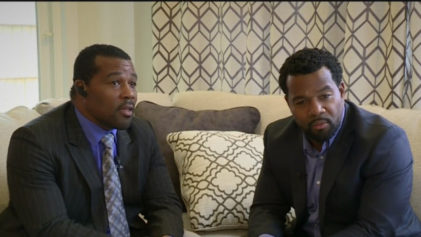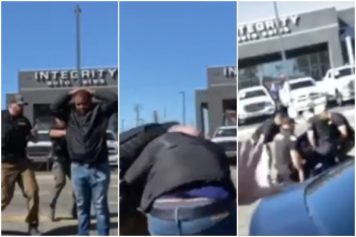Nearly three years after he was tased by police during an arrest that followed a parking violation, NBA player Sterling Brown has agreed to a $750,000 settlement in his civil rights lawsuit against the city of Milwaukee. Brown signed the settlement on Friday, Nov. 6, The Athletic first reported.
The settlement came at the recommendation of Milwaukee City Attorney Tearman Spencer and Assistant City Attorney Robin Pederson.

“Because of the unpredictability of a trial, and the City’s risk for exposure to compensatory and punitive damages, as well as additional attorney fees and costs, we recommend that this matter be settled for that amount,” the duo wrote Wednesday, Nov. 4.
In addition to the payment, the city will be required to admit they violated Brown’s constitutional rights and commit to changing operating procedures in the department. They have 180 days to make the changes after the agreement is executed.
The news comes after Brown, 25, rejected a prior settlement of $400,000 proposed by the city in September 2019 because it didn’t include further accountability.
“I want cops to show respect and to be held accountable when they step out of line, especially in the neighborhoods they are supposed to serve and protect every day,” Brown wrote in an article entitled Your Money Can’t Silence Me in The Players’ Tribune. “If they kill a man, I want them to receive the same punishment that another guy on the street would.”
The Milwaukee Bucks guard brought the lawsuit against the city in 2018 after accusing the police of using excessive force in the Jan. 26, 2018 encounter.
Police body camera footage corroborated Brown’s story, showing officers confronting him for parking across two handicapped spots and calling in reinforcements before the situation escalated.
Brown’s hands were placed behind his back; he was wrestled to the ground, tased and his ankle stepped on. When Brown asked officers why they were stepping on his ankle, one replied, “So you don’t kick us.” Brown replied, “I ain’t got no reason to kick y’all, man.”
The bodycam footage also shows officers mocking potential outcries of police brutality and racism once they realized who Brown was.
“Because he plays for the Bucks, if he makes a f—ing complaint, it’s gonna be a f—ing media firestorm and then any little f—ing thing that goes wrong, it’s gonna be ‘Oh the police department is all racist … blah, blah, blah,” one officer said.
Brown was arrested, issued a parking ticket and released before playing in a game that same night. He had visible bruises on his face in the mugshot and during the game. He was never charged.
Milwaukee police chief Alfonso Morales said an investigation into the matter “revealed members acted inappropriately” and they were “disciplined.”
The Bucks released a statement standing with Brown at the time and another Monday after the settlement agreement was reached.
“We are pleased that Sterling’s lawsuit has been mutually resolved and that there’s been an important commitment by the City of Milwaukee and its Police Department to make changes to the MPD’s standard operating procedures. No one should ever have to go through the horrifying abuse and injustice that Sterling experienced,” the statement said before commending Brown for his courage and activism.
Brown and the Bucks were the first team to boycott a game protesting the August police shooting of Jacob Blake, a Black father in Wisconsin who was shot seven times in the back. The action led to a multiple-day boycott by many teams across most major sports leagues.
Brown has yet to publicly comment on the settlement.


